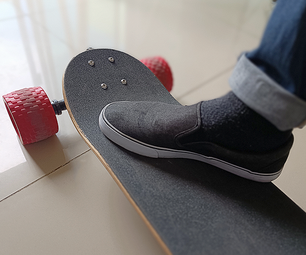Introduction: Tent Wood Stove Classic KP
Facing all heating and cooking problems during my hiking outdoor activities I collected plenty of ideas for DIY wood stove designs. As well as information about commercial hiking/camping stoves which are shamelessly expensive.
On a scrap yard I stumbled upon a used kitchen stainless steel washing basin and a light bulb went off. Visible on the following pictures I cut two pcs out and on one of them cut out the opening for future stove door on hinges. The hinges had to be dismantled and left right reassembled (i.e. Z form).
Step 1: Assembling Classic Wood Stove
Exhaust openings remain in opposite positions when two halves are stacked on each other. I added 3 pcs 8mm long screws to serve as legs. On the scrap yard I also found a market metal basket roller, cut a piece out and bent a few outer wires 30mm down to serve as distancers from the bottom. This will support firewood and provide air flow from the bottom.
Fires have the best combustion if there is a minimum of 6 inches distnace from the sides of the stove.
Step 2: Spray Steel Cans Into Chimney
Chimney.
Has to be light, durable.
Therefore I will use metal spray cans made out of steel. One sort to get consistent dimensions.
Has to be warm/hot, to provide good draft and prevent building soot which forms always on the coldest parts of the chimney.
Therefore double wall tube / chimney.
It has to be, for packaging purposes, stackable.
So, one can with top and bottom cut off, one can 5 mm shorter with cut off top and bottom and split horizontally (i.e. cut out a 6mm strip) which made this can fit tightly in the previous one and sticking out half the length of can.
2 pop rivets serve to hold this in place. I made 6 such double cans that can stack and got a double wall tube... excellent for my chimney.
Step 3: Assembling Chimney and Snapers
The chimney is done. On the top half basin exhaust opening I put 3 side supports for the lowest part of the chimney. I'm using wing nuts for easy assembly.
Then I cut out a 10x17cm square opening in the top half, covered it with RODEX thermo glass, 6pcs 3cm x 11cm x 4mm to have a window to peek inside, without door opening.
On lower shell I mounted 8 snappers to easy fastening of the shells. Lower hole has a slider to control air flow from the bottom.
Step 4: Field Test
One day after finishing the stove I made camp and tested how this stove behaves. All surrounding dead wood was really wet. Sawing, splitting and usual work for fire was fast and fire started fast. The stove burned all sort of wood regardless of moisture content.
Yes! I have a portable stove which is extremely cheap, small package, meainig great comfort and a total weight of 4.5 kg. Easy to carry on my KP solowheel....
Fire wood completely burned out. There was no soot inside the chimney.
The outside temp was ~4 C, no wind and I got a pot of water boiling in 20 minutes with a normal fire. When the stove cooled off, opening and cleaning was super easy.
Now, I am waiting for a couple of snowy days to test this all again during several days of winter hiking.
To be continued...
https://www.youtube.com/watch?v=tvWUidzPLuc&feature=youtu.be
Step 5:

Participated in the
Burn It! Contest













